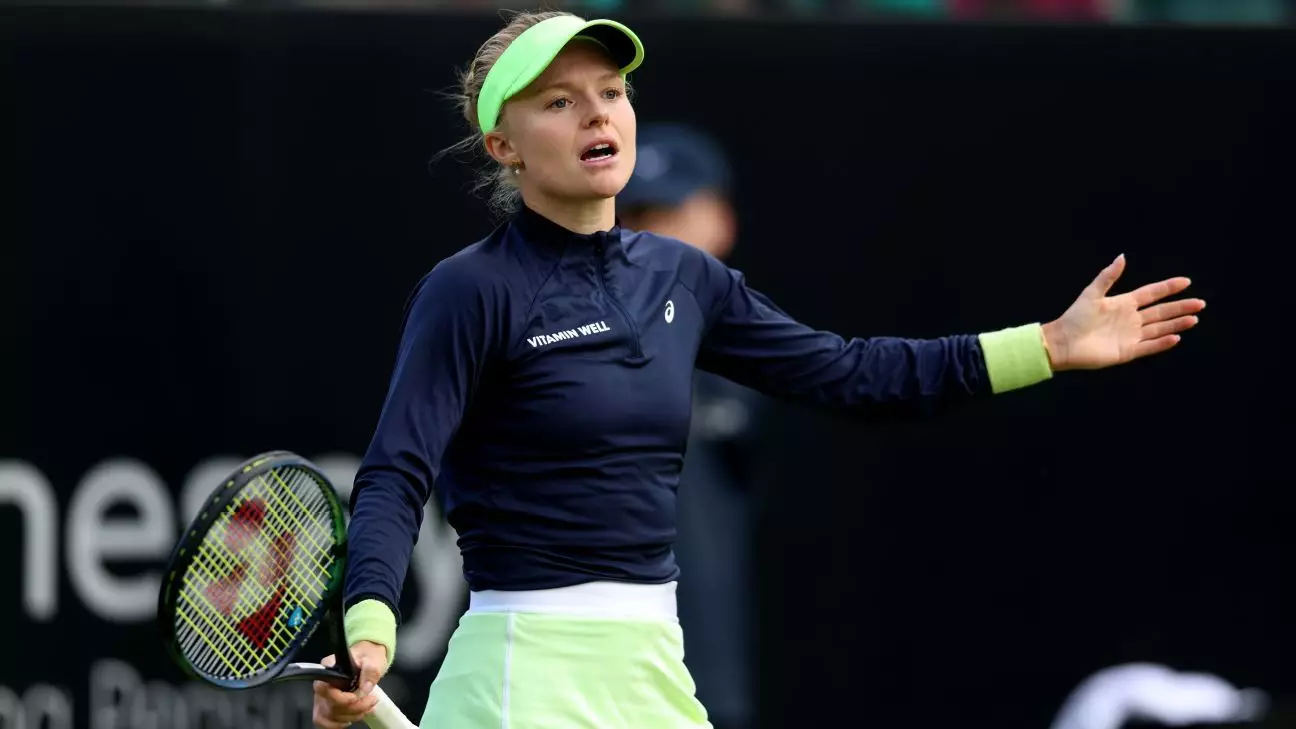In the high-stakes world of professional sports, emotions often run deep, particularly in the arena of tennis. Recently, Harriet Dart’s outburst during her match against Lois Boisson at the Rouen Open exemplified how feelings of frustration can lead to poorly chosen words. The British player, who suffered a comprehensive defeat, found herself expressing a personal critique of her opponent that not only breached common etiquette but also ignited a conversation about sportsmanship. As athletes, they are not only representatives of their respective countries but also role models to aspiring young players who look up to them. Dart’s comment, asking the umpire to tell Boisson to apply deodorant, was a glaring misstep, overshadowing the intense pressure both players faced on the court.
A Tifosi of Backlash
The immediate reaction to Dart’s comments was swift and unforgiving, underscoring the instantaneous impact of social media in today’s sports discourse. Outcry erupted across platforms as fans and fellow athletes weighed in, critiquing the lack of decorum. The backlash served not only to question Dart’s judgment but also acted as a barometer for how susceptible athletes are to cracking under pressure. In the era of digital commentary, one’s words can reverberate far beyond the confines of the match, marking a player’s legacy in unforeseen ways. The severity of the response reflects a growing sensitivity towards respect and kindness in sport—a desirable shift, particularly as competitive landscapes evolve.
Learning from the Myriad of Empathy
In an admirable turn following the controversy, Dart took to Instagram to issue a heartfelt apology, denouncing her comment as a product of the “heat of the moment.” Her acknowledgment of remorse highlights the importance of accountability not merely in sports but in all aspects of life. In her statement, she praised Boisson’s performance and indicated her willingness to learn from the situation. This act of contrition could serve as a positive example for both her peers and up-and-coming players, demonstrating that even the best can falter but owning one’s mistakes is crucial for personal growth.
A Lesson in Sportsmanship: Boisson’s Response
Countering the tensions, Lois Boisson’s light-hearted reaction provided a refreshing insight into the nature of athletes. By humorously editing a photo to include a Dove deodorant above her hand, Boisson defused the situation with grace. This approach not only showcases her strength of character but also promotes a culture of positivity rather than bitterness, drawing a clear line between competition and camaraderie. It reflects the sportsman’s spirit—one that is resilient, buoyed by the understanding that while personal rivalries are inevitable, mutual respect must always prevail.
Reimagining Athletic Rivalries
What Dart’s episode encapsulates is not just a personal misjudgment but a profound reflection of what the competitive spirit should entail. The choice to engage in dialogue rather than deride opponents, to uplift rather than diminish, remains paramount in fostering an environment where talent can flourish without the looming threat of negativity. As Dart and Boisson exemplify, revisiting the fundamental values of respect, accountability, and light-heartedness can cultivate an athletic community that thrives on mutual success, thereby elevating the sport itself.

